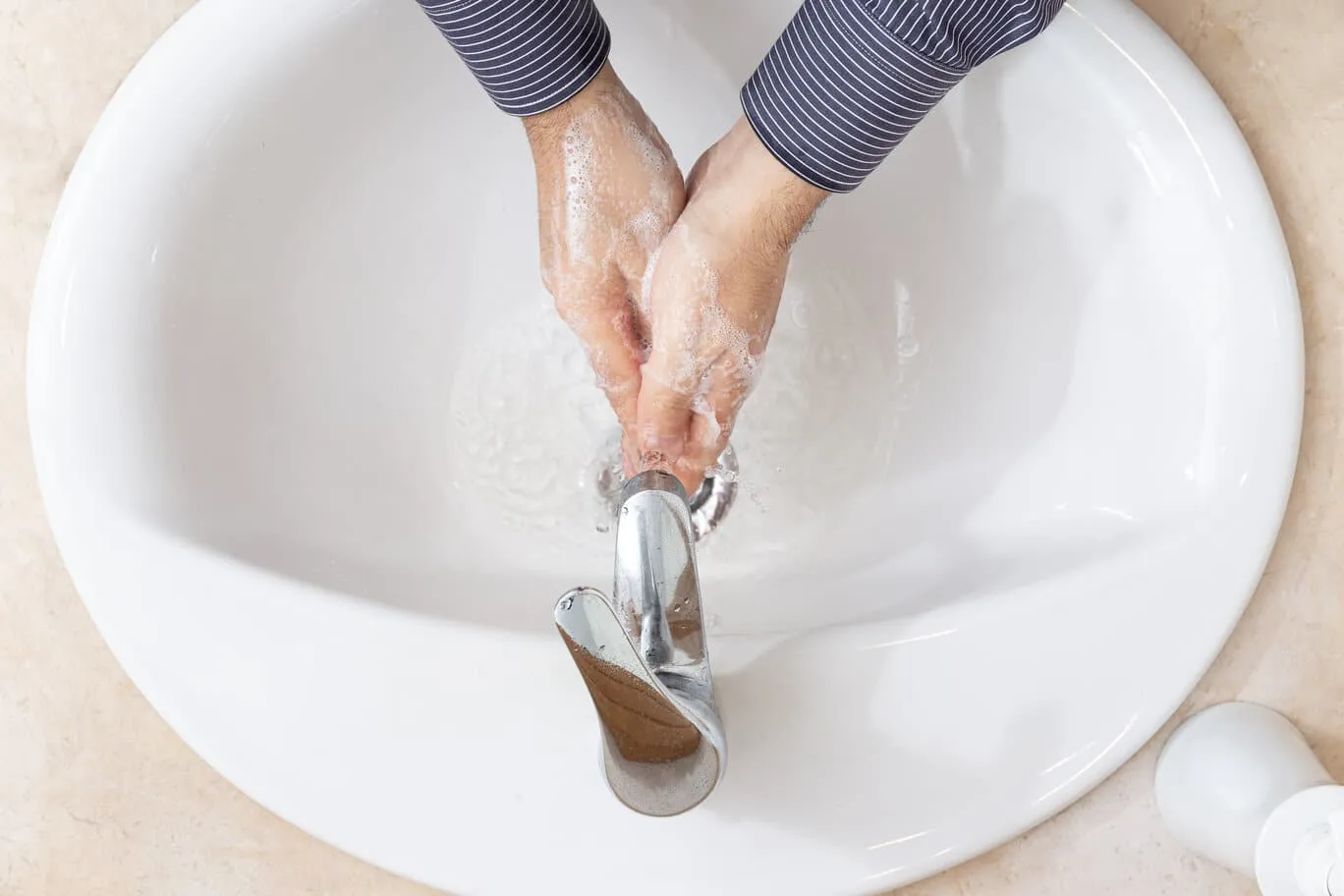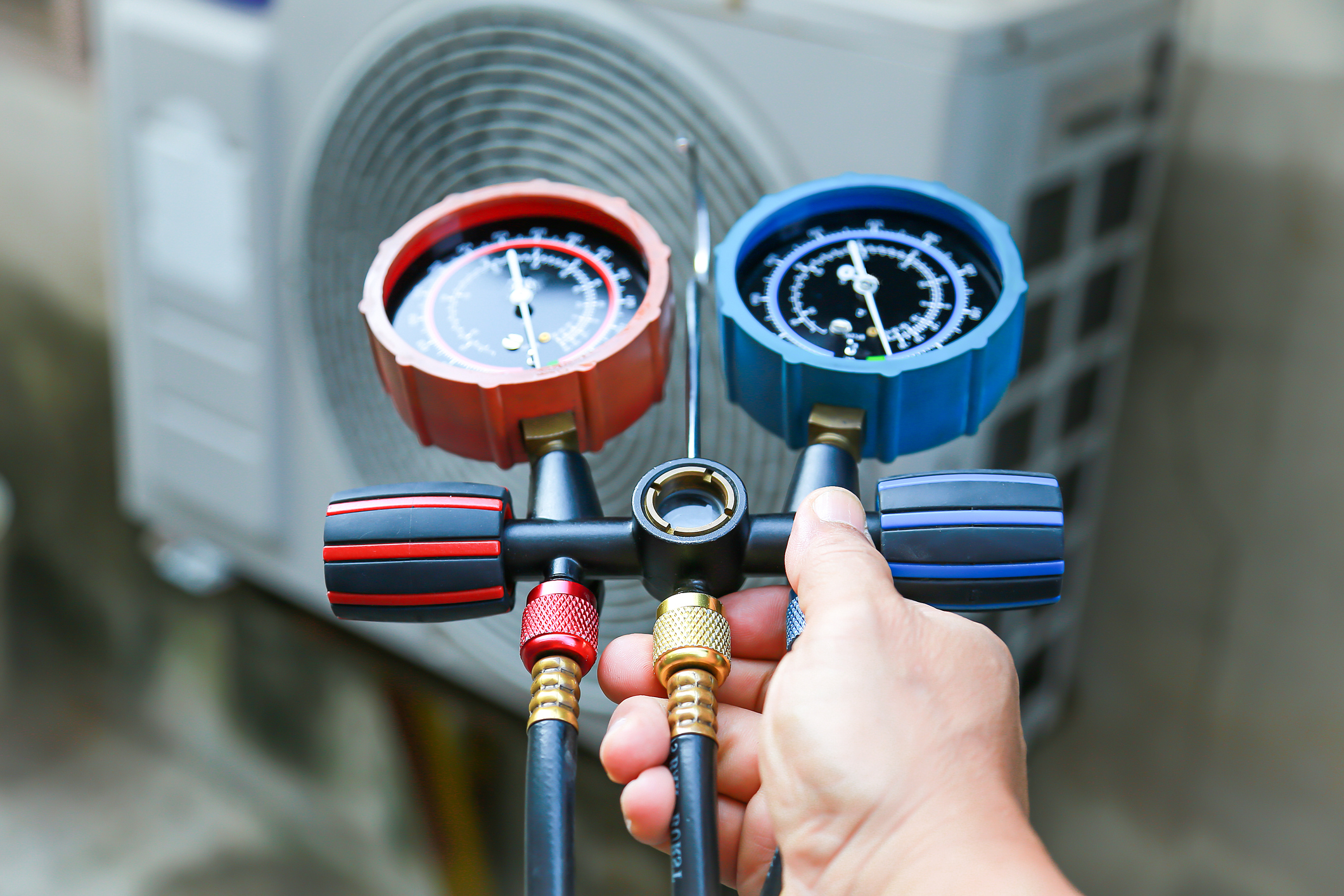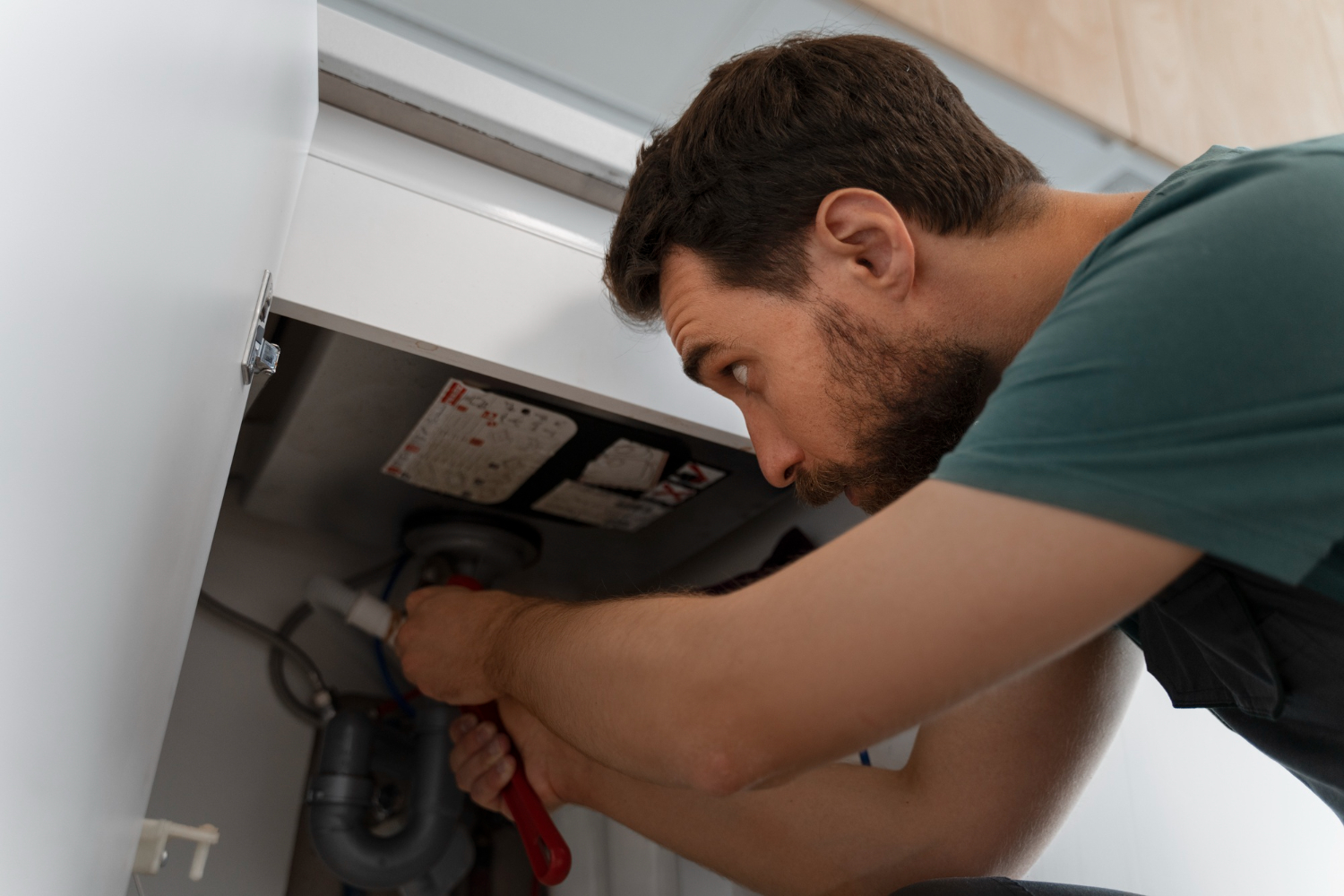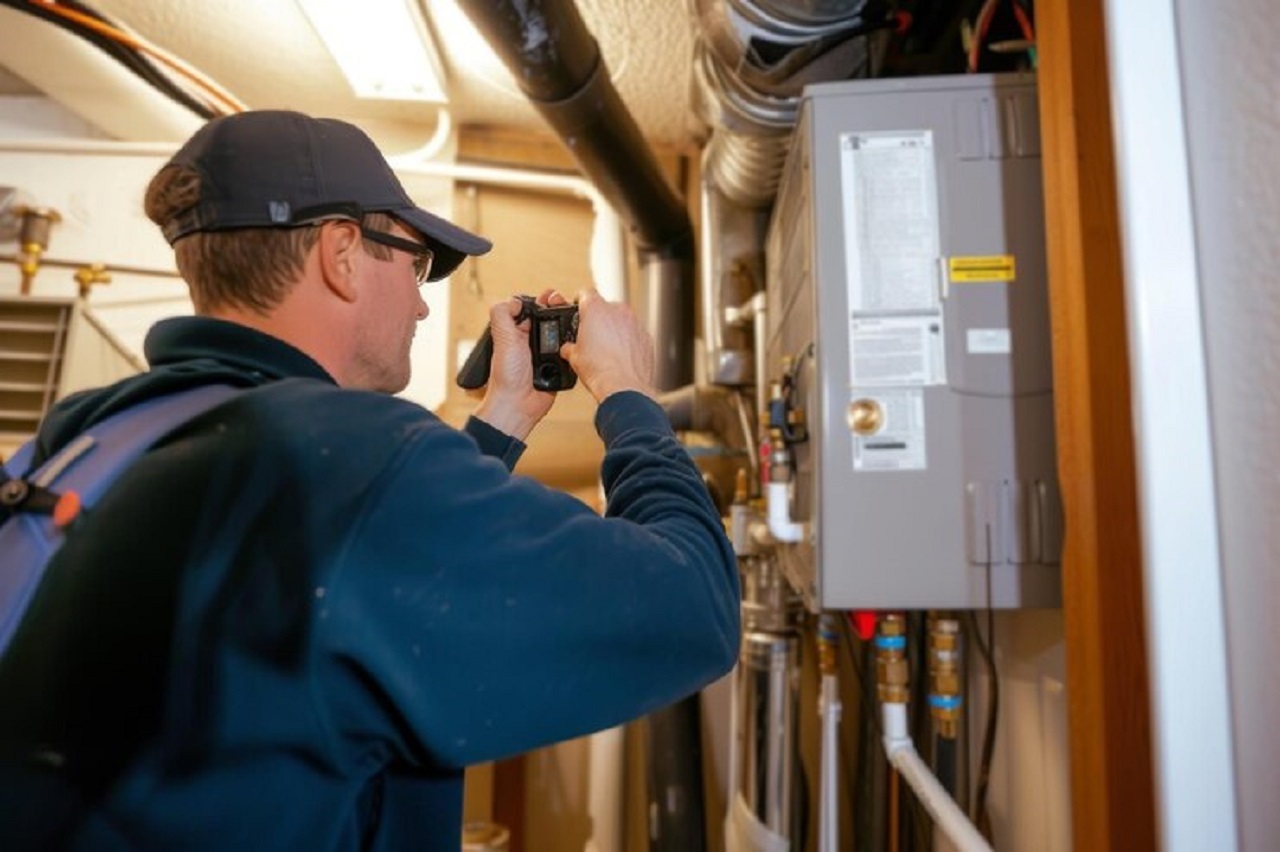Dealing with frequent drain clogs can be frustrating and inconvenient. If not addressed promptly, clogged drains can lead to slow water drainage, unpleasant odors, and even water damage. At EnviroSafe Plumbing, Heating, Air Conditioning, and Water Treatment, we understand the importance of keeping your plumbing system in optimal condition. Our team of professionals in Southern New Jersey has extensive experience addressing and preventing common plumbing issues, including drain clogs.
Understanding the root causes of frequent drain clogs is the first step in preventing them. Drains can become clogged due to a variety of reasons, including the accumulation of hair, grease, soap scum, food particles, and other debris. Additionally, tree roots infiltrating the sewer lines, outdated plumbing systems, and improper use of drains can contribute to persistent clogs.
Get expert tips and advice on how to prevent frequent drain clogs and maintain a smooth-flowing plumbing system. From simple everyday habits to preventive maintenance practices, we will provide you with comprehensive insights to help you keep your drains clear and efficient. Let’s dive into the expert advice and strategies that can help you prevent frequent drain clogs and keep your plumbing system in top-notch condition.
Keeping Hair Out of Drains
Hair accumulation is one of the most common causes of drain clogs, particularly in the bathroom. When hair builds up in the drain, it can create blockages that prevent water from flowing smoothly.- Install Drain Screens: Installing drain screens or hair catchers over your drains can help prevent hair from entering the pipes. These devices capture hair before it goes down the drain, making it easy to remove and dispose of. Regularly cleaning these screens ensures they remain effective.
- Brush Hair before Showering: Brushing your hair before showering can significantly reduce the amount of loose hair that goes down the drain. This simple habit helps keep the drain clear and minimizes the risk of clogs.
- Regular Maintenance: Even with preventive measures, some hair might still find its way into the drain. Regular maintenance, such as using a hair removal tool or a bent wire to pull out hair, can help keep the drain clear. Performing this task weekly can prevent hair buildup and ensure smooth drainage.
Avoiding Grease Buildup in Kitchen Drains
Grease is a major culprit for kitchen drain clogs. When grease cools and solidifies in the pipes, it narrows the pathway for water, leading to blockages.- Proper Grease Disposal: Never pour grease or oil down the sink. Instead, allow it to cool and solidify before disposing of it in the trash. Using a container to collect and discard grease can prevent it from entering the drain.
- Use Hot Water and Dish Soap: After washing greasy dishes, run hot water down the drain along with a few drops of dish soap. The hot water helps keep the grease in a liquid state, while the dish soap breaks it down, making it less likely to cling to the pipes.
- Regular Cleaning: Regularly cleaning your kitchen sink drain with baking soda and vinegar can also help prevent grease buildup. Pour a mixture of baking soda and vinegar down the drain and let it sit for a few minutes before flushing with hot water. This natural remedy can break down grease and keep your drains clear.
Avoiding Food Particles in Kitchen Drains
Food particles can easily clog kitchen drains, especially when they accumulate over time. Taking preventive measures can help keep your kitchen drains flowing smoothly.- Use a Sink Strainer: Using a sink strainer can catch food particles before they enter the drain. Empty and clean the strainer regularly to ensure it remains effective.
- Dispose of Food Scraps Properly: Avoid disposing of large food scraps down the sink. Instead, scrape plates and bowls into the trash or compost bin before washing them in the sink. This reduces the amount of food that can enter the drain and cause clogs.
- Run the Garbage Disposal Regularly: If you have a garbage disposal, use it regularly to break down small food particles before they enter the drain. Running cold water while using the disposal helps flush the particles through the system.
Managing Soap Scum Buildup
Soap scum can accumulate in the drains over time, leading to blockages. Preventing soap scum buildup can help maintain clear drains.- Use Liquid Soap: Switching from bar soap to liquid soap can reduce soap scum buildup. Liquid soap tends to dissolve more easily in water, leaving less residue behind.
- Regular Cleaning: Regularly cleaning your drains with a mixture of baking soda and vinegar can help break down soap scum. Pour the mixture down the drain, let it sit for a few minutes, and then flush with hot water.
- Rinse Showers and Sinks: After using the shower or sink, rinse the area with hot water to wash away any soap residue. This simple step can prevent soap scum from accumulating and clogging the drain.
Preventing Tree Root Infiltration
Tree roots can infiltrate sewer lines and cause major blockages. Taking steps to prevent tree root infiltration can protect your plumbing system.- Avoid Planting Trees near Sewer Lines: Avoid planting trees or shrubs with invasive root systems near sewer lines. Choose plants with non-invasive roots to reduce the risk of roots entering the pipes.
- Regular Inspections: Regularly inspecting your sewer lines with a professional plumber can help identify potential root infiltration early. Early detection allows for timely intervention to prevent major blockages.
- Using Root Killers: Applying root-killing chemicals can help prevent root growth in your sewer lines. These chemicals create a barrier that deters roots from entering the pipes. Follow the manufacturer’s instructions for safe and effective use.
Avoiding Foreign Objects in Toilets
Foreign objects flushed down the toilet can cause significant clogs and even damage the plumbing system. Preventing such issues requires careful use and awareness of what should and should not be flushed.- Flush Only Toilet Paper and Waste: Toilets are designed to handle only human waste and toilet paper. Avoid flushing items like wipes, sanitary products, cotton balls, and paper towels. These items do not break down easily and can cause blockages.
- Keep a Trash Bin Nearby: Keep a trash bin next to the toilet to dispose of items that should not be flushed. This makes it convenient for everyone in the household to dispose of non-flushable items properly.
- Teach Children about Toilet Use: Educate children on what can and cannot be flushed down the toilet. Encourage them to use the trash bin for other items and explain the importance of proper disposal to prevent clogs.
Preventing Scale Buildup in Pipes
Hard water can cause scale buildup in pipes, leading to reduced water flow and potential clogs. Taking steps to prevent and address scale buildup can keep your plumbing system running smoothly.- Install a Water Softener: Installing a water softener can reduce the hardness of your water, preventing scale buildup in pipes. This helps to keep water flowing freely and reduces the risk of clogs caused by mineral deposits.
- Regularly Descaling Pipes: Regular descaling of pipes using descaling agents can help remove existing mineral deposits. Follow the instructions on the product for safe and effective use. Performing this task periodically can prevent scale buildup from becoming problematic.
- Monitoring Water Pressure: Regularly check the water pressure in your plumbing system. Low water pressure can indicate scale buildup. Addressing low pressure promptly can prevent further issues and maintain optimal water flow.
Maintaining Clean and Clear Shower Drains
Shower drains can easily become clogged with hair, soap scum, and other debris. Regular maintenance and preventive measures can keep shower drains clear and functioning properly.- Using a Hair Catcher: A hair catcher placed over the shower drain can trap hair and prevent it from going down the drain. Regularly clean the hair catcher to keep it effective and ensure it does not become clogged.
- Cleaning with Baking Soda and Vinegar: A mixture of baking soda and vinegar can be a powerful cleaner for shower drains. Pour the mixture down the drain, let it sit for a few minutes, and then flush with hot water. This helps break down soap scum and other debris, keeping the drain clear.
- Running Hot Water after Showers: Running hot water down the shower drain for a few minutes after each use can help wash away soap residue and prevent buildup. This simple step keeps the drain clear and minimizes the risk of clogs.
Preventing and Clearing Floor Drain Clogs
Floor drains, commonly found in basements, garages, and laundry rooms, can become clogged with dirt, debris, and other materials. Regular maintenance and preventive measures can keep these drains clear.- Keeping the Area Clean: Keep the area around the floor drains clean and free of debris. Regular sweeping and cleaning can prevent dirt and other materials from entering the drain and causing blockages.
- Using Drain Covers: Install drain covers over floor drains to prevent large debris from entering the drain. Clean the covers regularly to ensure they do not become clogged themselves and continue to protect the drain.
- Regularly Flushing with Water: Pouring water down floor drains regularly can help prevent clogs by keeping the trap seal full and washing away any potential blockages. This simple maintenance step ensures the drain remains clear and functional.
Managing Laundry Room Drain Clogs
Laundry room drains can become clogged with lint, detergent residue, and other materials. Proper maintenance and preventive measures can keep laundry room drains clear and flowing smoothly.- Cleaning the Lint Trap: Regularly cleaning the lint trap in your washing machine can prevent lint from entering the drain. This helps reduce the risk of blockages caused by accumulated lint.
- Using a Drain Screen: Installing a drain screen in the laundry room drain can catch lint and debris before they enter the drain. Clean the screen regularly to maintain its effectiveness and prevent clogs.
- Avoiding Excessive Detergent Use: Using too much detergent can cause residue buildup in the pipes. Use the recommended amount of detergent to reduce the risk of buildup and ensure your laundry room drains remain clear.
Scheduling Regular Professional Maintenance
Regular professional maintenance can help identify and address potential drain issues before they become major problems. Our professionals can provide thorough inspections and cleaning to keep your plumbing system in optimal condition.- Annual Inspections: Scheduling annual inspections with our professionals can help identify early signs of clogs and other issues. Early detection allows for timely intervention and prevents minor issues from becoming major problems.
- Professional Drain Cleaning: Professional drain cleaning services can thoroughly clean your drains and remove any buildup that may cause clogs. Our technicians use specialized tools and techniques to ensure your drains are clear and functioning properly.
- Addressing Root Causes: Our professionals can help identify and address the root causes of frequent drain clogs, providing long-term solutions that keep your plumbing system in top-notch condition. Regular maintenance and attention to these root causes can prevent future clogs and ensure smooth drainage.
Choosing the Right Toilet Paper
Toilet paper plays a significant role in preventing drain clogs. Utilizing the wrong type of toilet paper can lead to blockages, especially in older plumbing systems.- Opt for Septic-Safe Toilet Paper: Septic-safe toilet paper is designed to break down quickly in water, reducing the risk of clogs. Look for toilet paper labeled as safe for septic systems, and avoid heavy, thick varieties that can take longer to dissolve.
- Avoid Flushing Large Amounts at Once: Even the best toilet paper can cause clogs if too much is flushed at once. Teach everyone in your household to flush smaller amounts of toilet paper to prevent blockages.
- Test for Dissolvability: Test your current toilet paper’s dissolvability by placing a few squares in a bowl of water and giving it a gentle swirl. If the toilet paper breaks down easily, it’s less likely to cause clogs. If it remains intact, consider switching to a more dissolvable option.
Handling Garbage Disposal Use
Garbage disposals can be convenient, but improper use can lead to clogged drains. Understanding what can and cannot be disposed of can keep your kitchen plumbing running smoothly.- Avoid Fibrous Foods: Fibrous foods such as celery, onion skins, and potato peels can wrap around the blades and cause blockages. Dispose of these items in the trash instead of using the garbage disposal.
- Limit Fat, Oil, and Grease: Fat, oil, and grease can solidify in the pipes, leading to clogs. Pour these substances into a container and dispose of them in the trash rather than down the disposal.
- Run Cold Water: Always run cold water before and after using the garbage disposal. Cold water helps solidify any grease, making it easier for the disposal to chop up and flush away. It also helps carry food particles through the pipes.
Maintaining Outdoor Drains
Outdoor drains can easily become clogged with leaves, dirt, and debris, leading to water pooling and flooding. Regular maintenance can prevent these issues and keep outdoor drains functioning properly.- Clear Leaves and Debris: Keep outdoor drains clear of leaves, dirt, and other debris. Regularly check and clean these areas, especially during fall when leaves are more likely to accumulate.
- Use Drain Covers: Installing drain covers can prevent large debris from entering outdoor drains. Clean and maintain these covers to ensure they remain effective in blocking debris while allowing water to flow.
- Ensure Proper Grading: Ensure that the ground around outdoor drains is properly graded to direct water towards the drains. Proper grading prevents water from pooling and reduces the risk of clogs caused by dirt and debris.
Educating Household Members
Proper education and habits among household members can go a long way in preventing frequent drain clogs. Ensure everyone understands the best practices for using drains, toilets, and disposals.- Create Awareness: Make sure everyone in the household understands the importance of proper drain use and disposal practices. This includes knowing what can and cannot be flushed or poured down the drains.
- Provide Necessary Tools: Provide drain screens, hair catchers, and garbage disposal guidelines to make it easy for everyone to follow proper practices. Having the right tools on hand can prevent inadvertent mistakes that lead to clogs.
- Establish Routines: Establish regular routines for cleaning and maintaining drains. This can include weekly cleaning practices and periodic professional inspections to ensure everything is functioning smoothly.
Identifying Early Warning Signs
Early detection of potential drain issues can prevent serious clogs and damage. Being aware of the warning signs can help you address problems before they escalate.- Slow Drainage: If water is draining slowly, it could indicate a developing clog. Addressing slow drainage promptly can prevent complete blockages and maintain proper water flow.
- Unpleasant Odors: Unpleasant odors coming from drains may signal buildup or a developing clog. Regularly cleaning drains can eliminate odors and prevent clogs from forming.
- Gurgling Noises: Gurgling noises from drains may indicate air trapped by a clog. Paying attention to these sounds and acting quickly can prevent more severe blockages and plumbing issues.
Schedule Professional Inspections
While regular household maintenance is crucial, scheduling professional inspections can provide an extra layer of protection against clogs. Our professionals can thoroughly inspect your plumbing system, identify potential issues, and provide effective solutions.- Thorough Inspections: Our professionals can perform thorough inspections using specialized tools to detect any signs of potential clogs or damage. This proactive approach helps address issues early and maintains the health of your plumbing system.
- Recommendations for Improvements: During inspections, our professionals can recommend improvements and preventive measures to protect your drains further. Implementing these recommendations can prevent future clogs and ensure efficient water flow.








